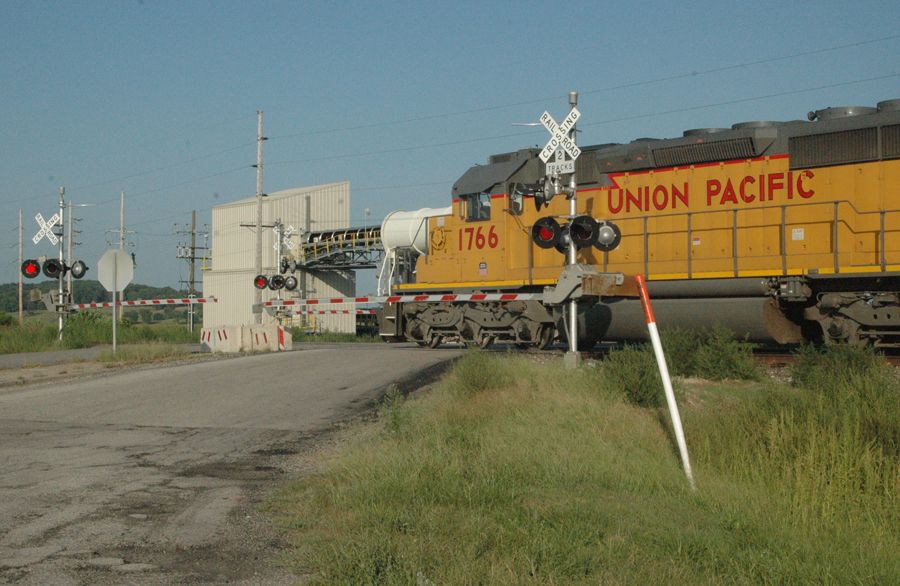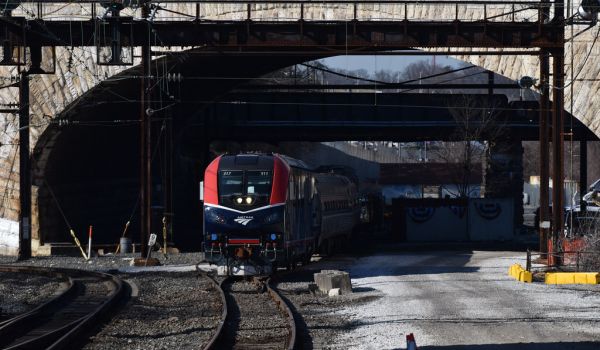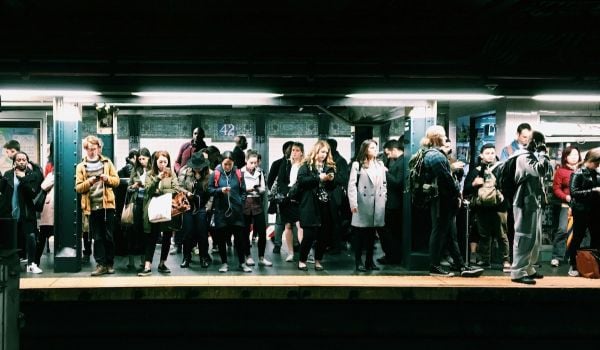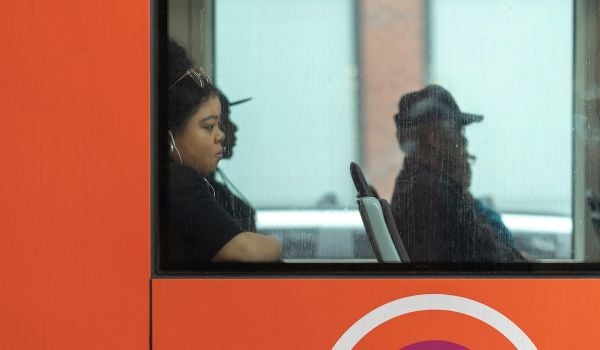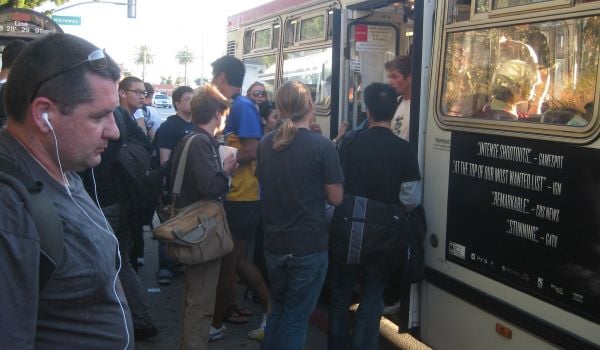Three weeks ago we reported that federal regulators are set to revise crash safety rules to allow lightweight European train models on the U.S. national rail network. Now, Colorado senators think they’ve managed to force the Federal Railroad Administration into revising another uniquely American rule: horn-blowing regulations.
Since 2005, the FRA has mandated that train engineers blow their horns at an ear-shattering 96 to 110 decibels for 15 to 20 seconds as they approach streets that cross tracks at grade. Communities can get around this rule with “quiet zones,” but these involve installing “four-quadrant gates” — they prevent cars from entering the tracks on both the left and right side of the road and on each side of the tracks — at crossings. Four-quadrant gates can cost up to half a million dollars per crossing, according to Union Pacific.
The rules may not matter much in large cities that have eliminated at-grade crossings, but small and medium-sized towns often have multiple crossings that are far too expensive to turn into quiet zones. “In a community such as Little Canada, [Minn.], which has five crossings in two miles,” Twin Cities newspaper Pioneer Press wrote this weekend, “that can sound like one continuous blow through the entire city, according to City Administrator Joel Hanson.”
Private passenger service All Aboard Florida is grappling with the issue now as it prepares to send more than a dozen new trains each day up and down the Florida East Coast Railway, which has 114 at-grade crossings along the route. Vancouver, Wash. asked its citizens if they’d pay what amounts to a train tax of up to $177 a year to silence the horns — not exactly the best way to encourage transit-oriented living.
But Colorado senators Michael Bennet and Mark Udall say they’ve finally pressured the FRA into reevaluating its rules. Quoth their joint press release:
Following months of pressure and numerous requests on behalf of Colorado communities, U.S. Senators Michael Bennet and Mark Udall welcomed the Federal Railroad Administration’s recent decision to review its train noise rules and consider how to cut red tape and make the required train-crossing upgrades more affordable for local taxpayers. The reassessment of the agency’s rules, noted at the Railroad Safety Advisory Committee’s Oct. 31 meeting, will give Colorado communities an important opportunity to weigh in as early as Spring 2014.
Bennet and Udall pressed the Federal Railroad Administration in a recent letter to reopen its rules and give Colorado communities the flexibility they need to confront train noise – which can hurt businesses and residents near crossings – and protect public safety.
For its part, the FRA sent Next City the following statement:
Safety is the FRA’s highest priority. The FRA is reviewing the train horn rule and welcomes any recommendations, however, we want to ensure that any potential outcome of a proposed change to the current train horn rule provides at least an equivalent level of safety when compared to the rule today. While highway-rail incidents declined by 34 percent over the last decade, collisions at highway-rail crossings remain a serious safety challenge. This is why we require all Quiet Zone applicants to fully assess the risks of silencing train horns and pursue the additional safety engineering improvements needed to mitigate them.
Despite the celebratory tone of the senators’ press release, the FRA hasn’t given any indication that it plans to make major changes. The process is in a much earlier stage than the review of crash safety rules, and it’s unclear how dramatically the honking regulations would change, if at all.
The Works is made possible with the support of the Surdna Foundation.
Stephen J. Smith is a reporter based in New York. He has written about transportation, infrastructure and real estate for a variety of publications including New York Yimby, where he is currently an editor, Next City, City Lab and the New York Observer.


